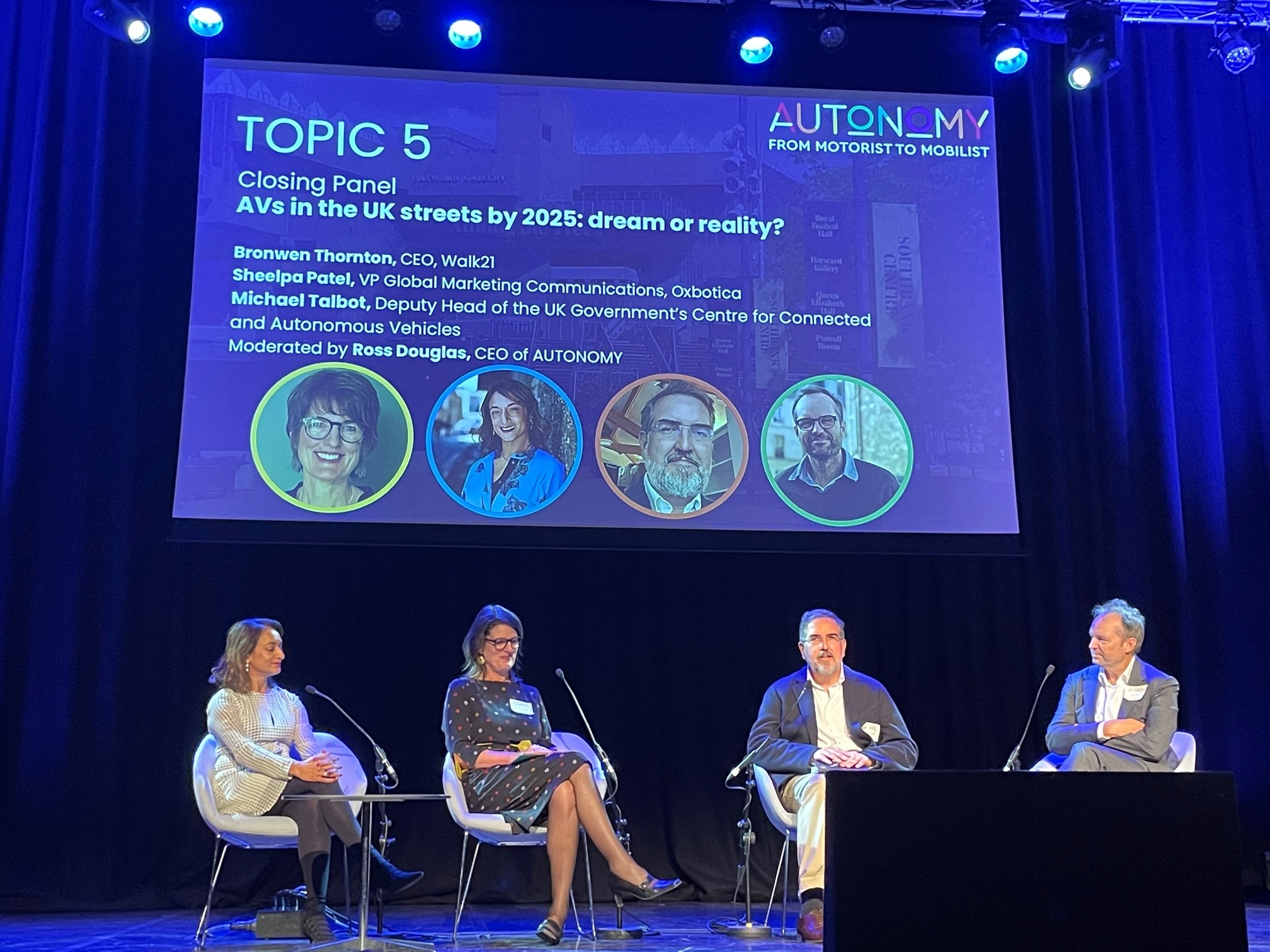
Autonomous vehicles (AVs) need to add benefit to people if they are to gain public trust, says a leading proponent of AV tech in the UK.
"These technologies have to serve society," insists Michael Talbot, deputy head of the UK government's Centre for Connected and Autonomous Vehicles (CCAV).
"If we end up flooding the streets with empty AVs then we've failed."
He was speaking at Autonomy's first London City Summit, which discussed the practicalities of introducing AVs into cities.
On a panel titled moderated by Autonomy CEO Ross Douglas - AVs in the UK streets by 2025: dream or reality? - it was pointed out that some technology is nearly here: vehicles with automated lane-keeping systems will be on UK roads by next year, for example.
But any AV roll-out must support the goals of Net Zero and active travel, Talbot emphasised.
Bronwen Thornton, CEO at Walk21 Foundation, sounded a warning note, saying that if AVs displaced pedestrians and cyclists and persuaded people to be less active, then that would have significant disadvantages, not least in terms of public health.
"If it doesn't deliver on the promise of improved quality of life in public spaces, then it's only a vehicle solution," she said.
"We need a system change. But if the tech can tell people to get out and walk now because they're half a mile from home, that would be a good addition."
The seventh edition of Autonomy Paris takes place on 22-23 March 2023











